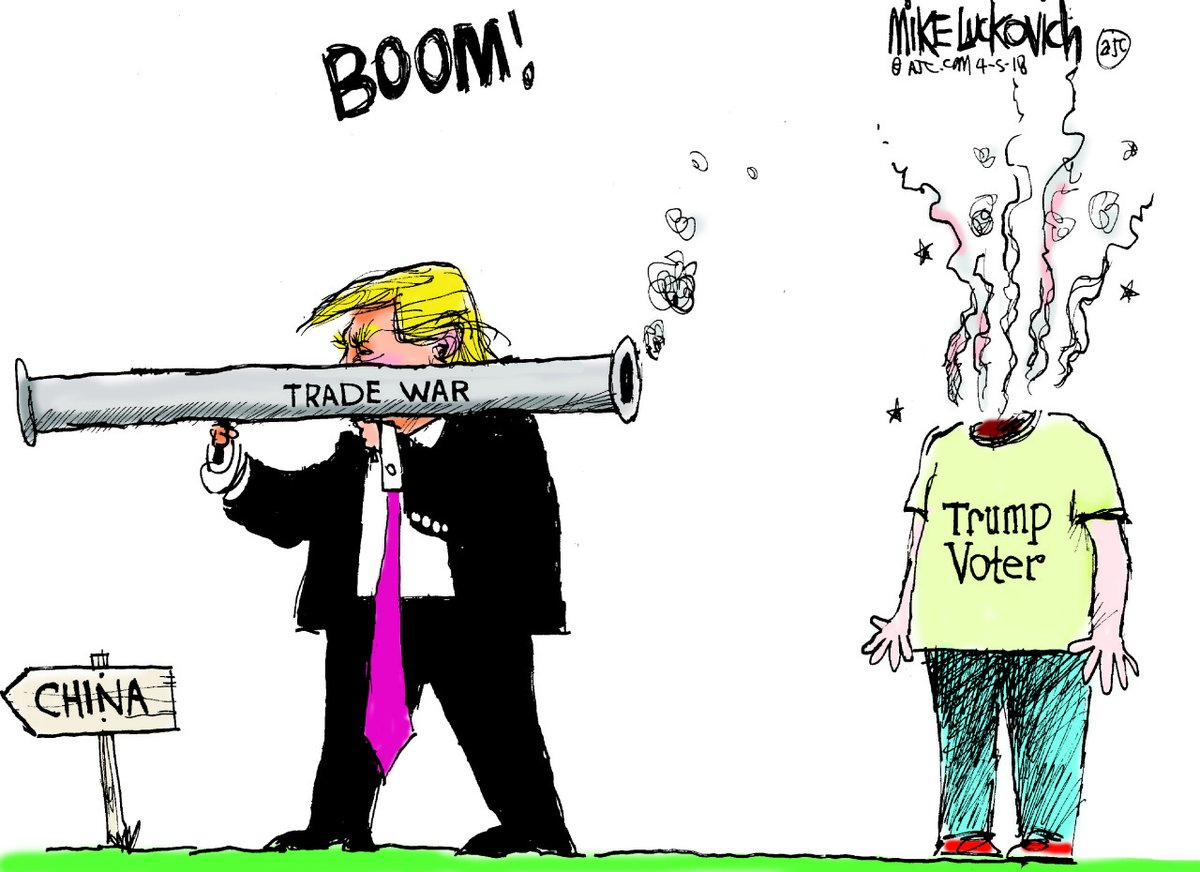Protectionism Doesn’t Protect America

The fragmentation of global trade and the current hostility of U.S.-China relations can be attributed, to a large extent, to the political nationalism of America.
Once you adopt the position of political nationalism, then names like cooperation in global institutions become almost a sign of weakness: When you start talking about “buy America” and “bringing jobs back to America”, in the context that globalization has disadvantaged America, such arguments imply the economic agenda is being replaced by the political agenda.

The Fragmentation of Global Trade Rooted in the Nationalism of America
In such a process the U.S. is undergoing – and I’m not referring to a particular party, but both major parties in America are extremely negative towards globalization. They are deeply concerned and even fearful about embracing a global community, and the whole process of rebuilding globalization may take a long time.
The nationalist sentiment of certain people, parties, and states, which is essentially anti-globalization, is the fault of the U.S. I have to admit that I failed to anticipate this previously. During the peak of globalization, which was the first decade after China joined the WTO, a series of data demonstrated the positive impact of globalization from the perspective of U.S. national interests: low inflation, GDP growth, etc. indicating that globalization did not harm America’s interests. However, at that time, we did overlook the micro-level harm caused by globalization to certain communities or groups. They lost their jobs and fell into dire straits.
Former U.S. President Donald Trump seized upon and amplified this sentiment. When people talked about globalization, Trump emphasized, “Everyone else is making money, but what about us? Our factories have closed, and our towns and families have been destroyed.” Therefore, in the next wave of globalization – and I believe there will be a next time because every trend is accompanied by a counter-trend that repeats itself – when protectionism declines, many countries will follow suit. When you say “buy America” will affect global trade, other countries will not do business with America, and that creates a domino effect throughout the world.
Therefore, the first step is to commit to respecting the global system. The WTO is a crucial global institution, and leaders of all countries must recognize its importance. We need to pay more attention and provide more support to towns and communities affected by globalization than we did in the past. If competition decreases, prices will rise, and quality will decline. Many countries have chosen the right path, such as Singapore and others that have come out in support of globalization, believing it brings benefits to us.
Protectionism Itself is a Paradox
There are over 70 elections in 2024 all over the world, including the U.S. Presidential Election. This trend seems to be extremized, either to the left or the right, with insufficient participation from those in the center. I don’t want to be the bearer of bad news but in the short term, I don’t believe that there’s light at the end of the tunnel.
The emotion and the rhetoric are very easy to use. You’ve heard politicians saying “You lost your job, it’s not your fault, it’s China’s fault, or it’s Mexico’s fault and I’m going to protect you.” The reality is that protectionism doesn’t protect. We still see the same problems as we had when we were pursuing globalization, and we have to face these problems.

Countries will prioritize their domestic interests more, and this worries me. From the perspective of my own country, the U.S. should not blindly trust itself but should believe that a prosperous world is beneficial to America, and helping developing countries contributes to promoting global prosperity. Merely considering what benefits America has no benefit for America itself; it is a paradox.
Politically, it’s simple to consider only U.S. interests, but we must consider how to break free from this path dependency, which is truly in the best interest of the U.S. To pursue globalization, our leaders should change their minds first.
We have just experienced a pandemic, and people constantly blame the pandemic, always referring to data from the years of the pandemic, trying to illustrate the negative impact of globalization. But the trend of deglobalization had already begun before that. There were various tariffs and mechanisms in global trade, and they are still there after the pandemic. So, some politicians say tariffs are not good and should be reduced, but then others come out and say that person is anti-American or pro-China. Judging economic issues based on political positions is not only meaningless but also harmful. These politicized keywords divert people’s focus from the real issues.
Unfortunately, the American people have not been educated and trained to make judgments based on facts. Actually, those working in multinational corporations and trade companies are earning more than others, and the profits of export companies far exceed those of non-exporting companies. However, these facts have not been given sufficient attention. People’s knowledge is partial and superficial: “We’ve sent all our jobs to Mexico.” But this is the narrative of politicians. We need to provide better education, and the private sector should play a greater role in educating its own employees, telling them why they need training and why tariffs are not beneficial. We need more advocacy on this.
Multinational companies are facing criticism in the U.S., but they provide a significant number of job opportunities, social welfare, healthcare benefits, employee training, and contribute to innovation. They make a substantial contribution to society. Let me re-emphasize this: it’s easy for politicians to stir up nationalist sentiment, but it does not help the people understand the economic reality.
So, what is the solution? It lies in the leadership role of leaders. Specifically, we need to make people recognize the importance of global institutions and mechanisms, to realize the significance of being global citizens, which is not contradictory to their national identity.
Editor: Zhaocheng_Pan



